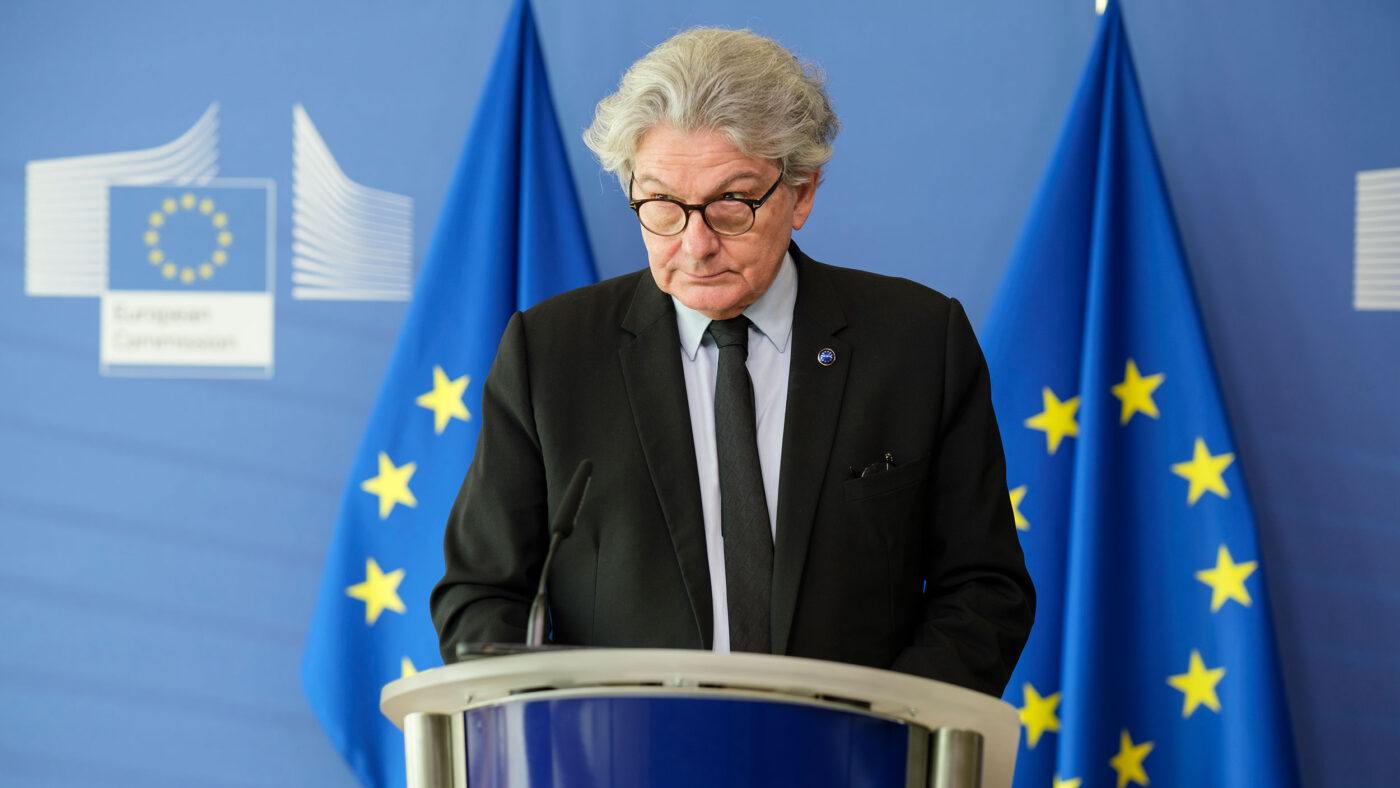It is an open secret, in Brussels and elsewhere, that for political reasons the UK must still be ‘punished’ for Brexit. The EU cannot afford to see a country prosper after leaving; the lesson must be driven home that exiting the European Union is the door only to economic contraction and dwindling competitiveness. For evidence, consider the current stalemate relating to electric vehicles. Strap in, because it’s a little complicated.
It begins with Britishvolt, a start-up intending to manufacture lithium-ion batteries for electric vehicles at a gigafactory in Northumberland. Work on their facility in 2021 but it subsequently went into administration. As a result, Europe has fallen behind the rest of the world in the development of gigafactories, which are crucial to achieving our Net Zero ambitions. Some factories are already in operation, such as Chinese manufacturer CATL’s site at Erfurt, but many more are merely at the planning stage. The sector requires patience.
This matters because the EU-UK Trade and Cooperation Agreement [TCA], part of the Brexit settlement, requires a certain proportion of battery components to be produced within the EU or UK. If they are not made here, the electric vehicles which they power will attract a 10% tariff when being exported between the EU and the UK, and since we are the EU’s largest single market for EVs, a tariff would make cars more expensive to buy here and more expensive overall for EU manufacturers. The European Automobile Manufacturers’ Association [ACEA] predicts that this could cost the sector more than €4.3bn over three years, and has requested a pause in implementation while battery production capacity increases.
The UK government is content to amend the terms of the TCA to delay its implementation, which seems practical, but the sentiment coming from the European Commission is less positive. Thierry Breton, the former head of France Télécom who has been EU commissioner for the internal market since 2019, indicated great reluctance to reopen any part of the Brexit settlement, telling The Guardian ‘If something has been negotiated, it shouldn’t be changed’. A spokesman for the Commission argued that the TCA had been framed to reflect ‘an overall balance of commitments’.
Kemi Badenoch, the business and trade secretary, is typically upbeat, and ‘optimistic’ that a deal can be struck; a failure to do so would impose more costs on European manufacturers and hand an advantage to car-makers outside the EU, while doing nothing to help boost the supply chain. But the issue reflects more about the nature of the Commission and the EU than about common sense.
The UK government knows this, and will negotiate on that tacit understanding; Sigrid de Vries, the experienced Dutch director general of the ACEA, confirmed that the matter was ‘politically very sensitive’. She emphasised that the association was wholly supportive of the TCA, merely seeking to delay these specific provisions.
It demonstrates something else too. For all the freedoms of the Single Market, it evolved slowly. While freedom of movement of goods, services, people and capital were core ambitions of the EEC when it was created in 1957, it gained little traction until Thatcher sent Lord Cockfield, a Conservative peer who had been chairman of Boots, to Brussels as commissioner for the internal market, tax law and customs in 1985, that genuine progress was made. He served just one term under Jacques Delors, but was subsequently immortalised as ‘the father of the Single Market’.
The lack of progress in the EEC’s early years reflected some of the factors which are hampering the EU now. While Britain has a centuries-old tradition of free trade, underpinned by the work of political economists such as Adam Smith and David Ricardo, continental theory moved in the other direction. Europe has always had an atavistic instinct towards protectionism, coupled with a belief in the efficacy of state intervention in the economy, what the French call dirigisme, and the dispute over batteries illustrates this. Faced with the industry not being as ready as it had hoped to be, the Commission’s first reaction has been to impose tariffs on the goods which fail to meet the provisions of the TCA.
It always was a pernicious lie that Brexit represented the UK turning its back on the continent of Europe, which is much more than the EU itself, and with which we have relationships going back a thousand years. But the different attitudes over this one aspect of the TCA illustrate different philosophical approaches. When Britain voted to leave the European Union, the government created a whole new department, International Trade, to seek out new opportunities and negotiate tariff-free commerce with countries around the world. By contrast, the Commission, the EU’s heart and soul in Brussels’s Quartier Européen, reflexively wants to impose restrictions on trade rather than ease regulatory burdens. Instead of seeking to get out of the way of the private sector, its instinct is to become more involved. Chacun à son goût, as they say in Belgium.
Click here to subscribe to our daily briefing – the best pieces from CapX and across the web.
CapX depends on the generosity of its readers. If you value what we do, please consider making a donation.


